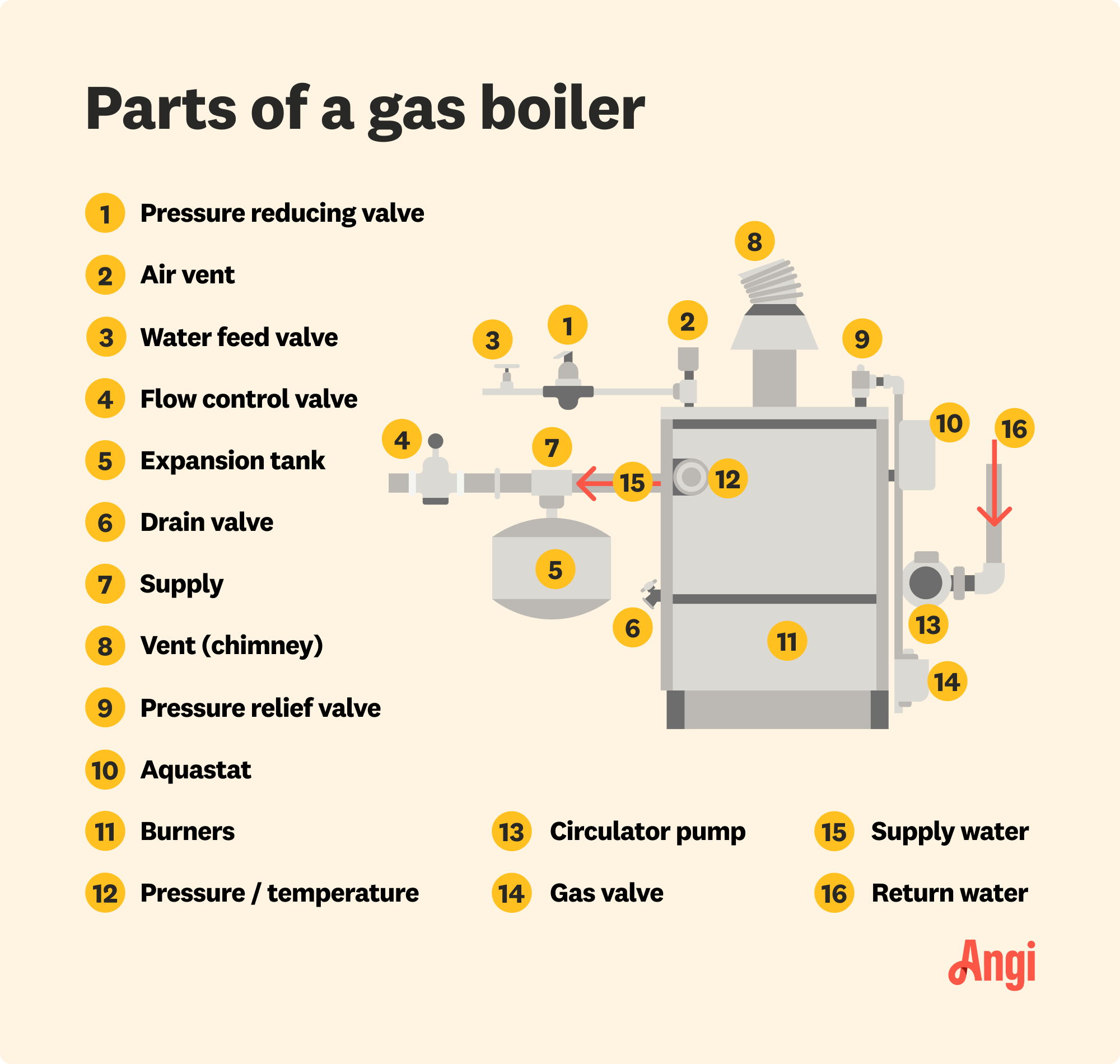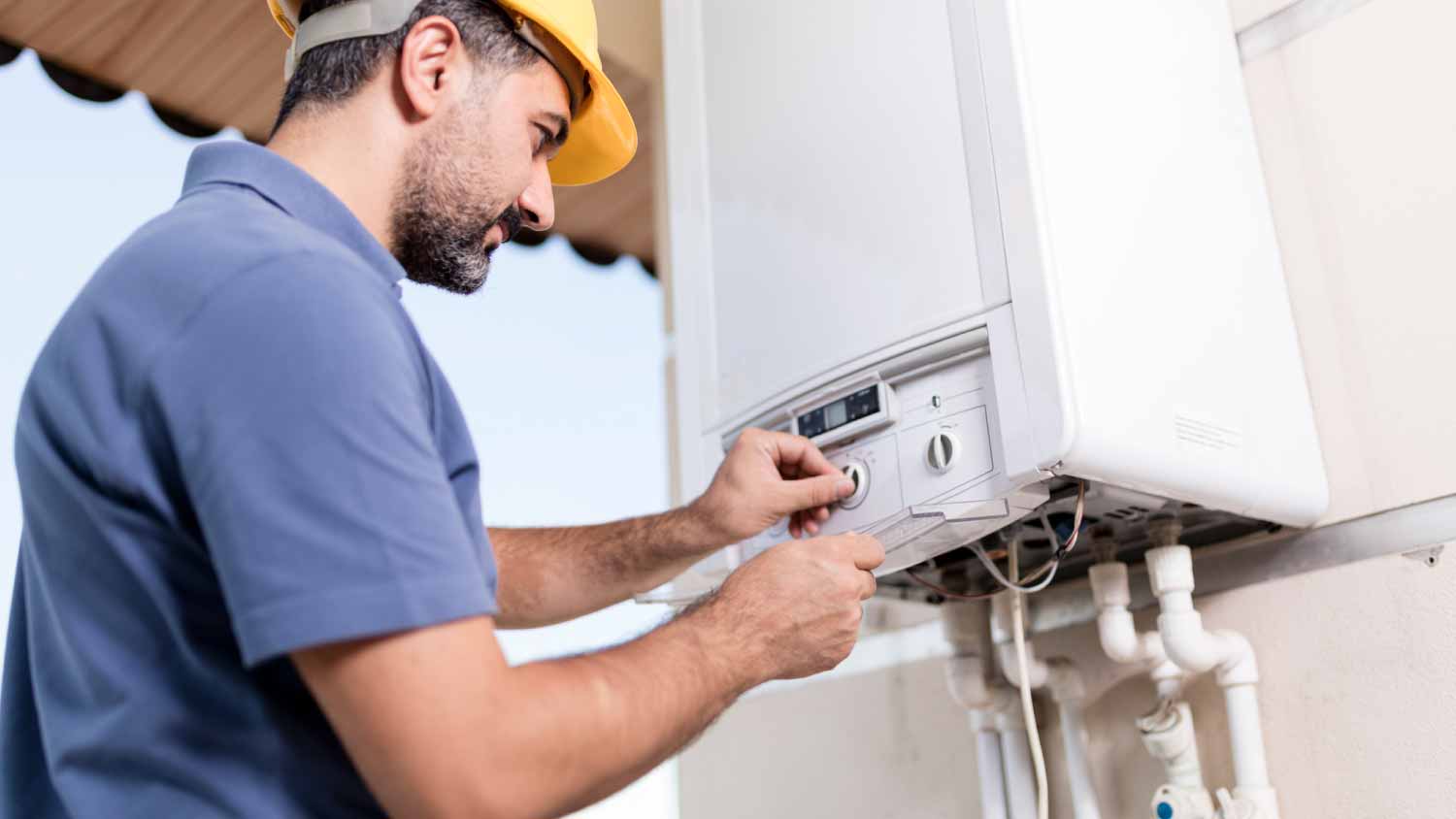How to Install a Boiler: What You Need to Know
This expert-level installation boils down to these steps


- Adjustable wrench
- Drill
- Boiler
- Sheet metal pipe
- Metal screws
- Copper pipe
- Nuts
Installing a boiler is a complex and potentially dangerous job that’s best left to qualified professionals. In some states, it’s even considered illegal to work on a boiler without proper licensing. Even if it’s legal where you live and you’re an experienced DIYer, you should seriously consider the task at hand before installing a boiler on your own. Read on to learn how to install a boiler.

Prepping to Install a Boiler
Before you decide to install a boiler on your own, it’s vital to make sure you’re prepared for the task at hand. First, you’ll want to thoroughly research local building codes and boiler installation requirements in your area. In some states, it’s illegal to install a boiler without the proper licensing. If local regulations don’t allow you to perform a DIY installation, reach out to a local boiler installation pro to handle the job for you.
If you have the experience and determine that you’re compliant with local regulations, the next step is to purchase the right boiler for your home. There are several types of boilers, each unique in size, function, and performance. For optimal installation results, it’s important to choose the best boiler for your specific heating needs. You’ll also need to have your old boiler removed before installing a new one.
How to Install a Boiler
Once you’ve checked local regulations and are positive that you can tackle the job safely, it’s time to install your new boiler. Follow these steps for success.
Pick a Location
Selecting the right location to install your new boiler is extremely important. For your boiler to operate efficiently, make sure to install it near water and gas lines, an electrical outlet, and the flue for proper ventilation. An ideal location is one with level ground, easy access, and away from common living areas to prevent noise disturbances. Make sure it’s accessible for future boiler maintenance pros.
Attach Main Pipes to the Boiler
Once you’ve chosen the best possible location for your boiler, the next step is to “dress” your boiler. This process involves attaching pipes to the system, resulting in optimal water distribution and heating performance. Using a wrench, attach the circular pump to your boiler. Then, attach the riser nipples. Choose the appropriate number of riser nipples based on the different heating zones in your home.
Install the Feed and Return Pipes
 Photo: demaerre / iStock / Getty Images Plus / Getty Images
Photo: demaerre / iStock / Getty Images Plus / Getty ImagesAfter you’ve attached the primary pipes, you can install the feed and return pipes. Once you attach the pipes to their respective positions, use a wrench to tighten the connections. Then, attach the boiler to a hot water tank and use a copper pipe. Feed and return pipes allow water to flow through your system and heat your home properly.
Install the Flue
The flue, also known as the smoke pipe, releases toxic exhaust gases into the outside air which acts as a source of ventilation. Your boiler needs proper ventilation to function safely and optimally. Attach the boiler to the flue using a sheet metal pipe. Drill holes into the pipe and then secure it using metal screws.
Attach the Gas Line
Since your boiler requires fuel to run properly, you’ll need to attach it to a gas line. If you’re using natural gas, connect a black threaded pipe to the gas line. It’s crucial that all connections are attached properly, as gas leaks can be life-threatening. In most cases, your boiler manual will have thorough instructions on how to connect the gas line. For your safety, it’s best to call a licensed pro to attach the gas line.
Start the Boiler
 Photo: VladimirGerasimov / iStock / Getty Images Plus / Getty Images
Photo: VladimirGerasimov / iStock / Getty Images Plus / Getty ImagesOnce your connections are secure, you’re finally ready to start up your new boiler. To fill the boiler, open the water line. Check to ensure that the water pressure and CO2 output are at their optimal levels. If you notice any alarming or unusual signs during start-up, you may need to make adjustments to your boiler system for it to run properly. You can never go wrong hiring a boiler pro to double check your installation and make any necessary tweaks.
DIY vs. Hiring a Pro
While DIY boiler installation can save you money, hiring a pro is a wise investment that ultimately protects the safety of you and your home. Installing a boiler requires the use of electricity and gas, which if handled improperly can result in serious injury or even death.
In addition, in some states it’s illegal to install a boiler without being licensed. That’s why we strongly recommend that you hire a boiler installation professional. You can expect to pay an average of $5,900 for a professional boiler installation, including the price of the unit, which varies by size and type.
Frequently Asked Questions
Installing a boiler requires training, a specific skill set, and extensive experience. Boiler installation can be extremely dangerous, as it involves working with water lines, gas lines, and electricity. For this reason, it’s strongly recommended that you hire a professional to install your boiler. Some states even consider it illegal to work on a boiler without the proper licensing.
Once you install your boiler, you can expect it to last for at least 10 to 15 years. Maximize the lifespan of your boiler by choosing a quality boiler, installing it properly, and having it professionally maintained each year. In the event that your boiler does need repair, address any issues immediately.















